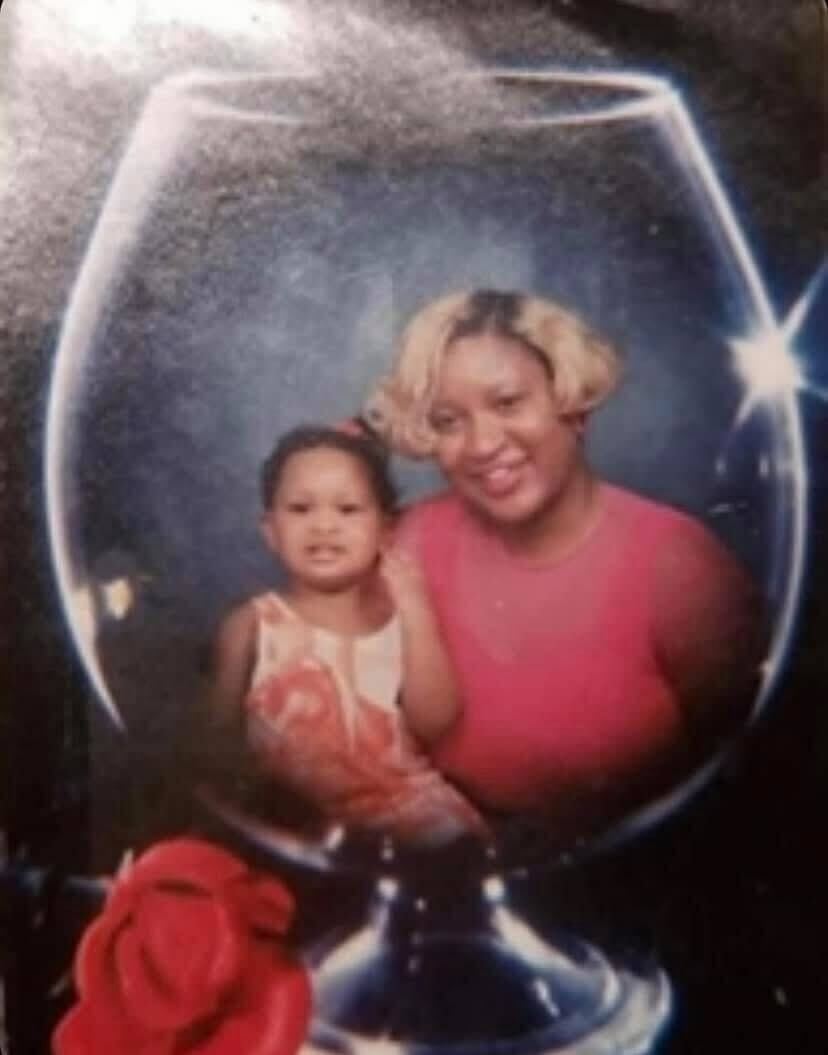Mississippi Today
Domestic violence deaths reflect families’ loss and grief
It was like seeing the writing on the wall and waiting for the worse to happen.
Family members and friends said they saw signs of physical, mental and other domestic abuse, and searched for ways to keep their loved ones safe: home security, a trip out of town, a firearm.
Some of the individuals experiencing the abuse turned to the legal system by seeking a protection order. Others looked for a way out of the harmful relationship.
But despite best efforts, some of those relationships ended in death.
Over 300 Mississippians have died from domestic violence homicides since 2020, according to an analysis by Missisisppi Today of data from the Gun Violence Archive, the Gun Violence Memorial, news articles, court records and obituaries.
That number includes not just those who experienced the abuse and those who perpetrated it, but also collateral harm to children, other adults and law enforcement caught in the crossfire. But it doesn’t reflect those who bear the pain and loss – children growing up without a parent, parents burying their child.
That has driven some survivors to become advocates and spread awareness about domestic violence.
It has touched people like Renata Flot-Patterson who lost her daughter and grandson in 2021 in Biloxi, and has gone on to organize domestic violence benefit concerts and helped create a mural that honors them.
And Tara Gandy who is teaching others about signs of abuse after her daughter’s death in 2022 in Waynesboro.
And Elisha Webb Coker, who as a teenager watched her mother experience abuse at the hands of partners and die in front of their Jackson home.
“It’s because the system is just the system,” the Gulfport resident said about the need for change around how domestic violence is addressed in the state.
“My mother was murdered in 1999,” Webb Coker said. “It’s still the same.”
The Mississippi Coalition Against Domestic Violence, which represents shelters, advocates and other support for survivors and victims, is backing efforts to study domestic violence deaths, with the hopes of building a better network to help people stay safe and prevent future deaths.
What started out as a pair of bills has come down to one, Senate Bill 2886. Lawmakers will need to agree on a final proposal in conference by the end of the month and then pass both chambers before it can reach the governor’s desk.
It’s an effort that some families of domestic violence homicide victims believe can lay out patterns of abuse and responses to it and show missed opportunities to step in.
At the Gulf Coast Center for Nonviolence in Biloxi, several women directly impacted by domestic violence homicide spoke to Mississippi Today. The center is supporting the legislation and has support services including a homicide survivors program.
Prince charming turned into a monster
In the wake of her daughter and grandson’s deaths, Flot-Patterson is left with questions: Why didn’t police intervene when her daughter’s former partner had served time for aggravated domestic assault? Why didn’t the hospital hold him for a mental evaluation when he threatened his child’s life?
She would like the state to pass a law that would take threats to a child’s life seriously and require the person who makes the threat – including a parent – to undergo a mental health evaluation. Flot-Patterson would name it “Brixx’s Law.”
Her daughter Keli Mornay and her 7-month-old grandson, Brixx, were both of her babies: Mornay was the youngest of her four children and at the time Brixx was the youngest grandchild.
Mornay had a beautiful personality and poured herself into helping others, sometimes putting them before herself, her mother said. She was family-oriented and fiercely proud of her children: Brixx and his older brothers.

It was that nature that drew her into problematic relationships.
Mornay met Byrain Johnson and liked that he was older and had his own children and grandchildren. He was a hard worker who showed signs of being a good man, and Mornay wanted to help him become a better person, Flot-Patterson said.
Within two months, the relationship began to go downhill and Johnson changed, Flot-Patterson said, noting earlier signs of abuse: the time he broke Mornay’s laptop. Another time he kicked down her bathroom door and took her clothes. It escalated to threats of violence and physical abuse.
“He was like the prince charming at first and then he turned into the monster that basically ruined everybody’s lives in my circle,” Flot-Patterson said.
In February 2020 during the drive home from a trip, Johnson and Mornay argued and he beat her and left bruises, cuts and broken teeth, Flot-Patterson said. But it was her daughter who was charged with domestic violence and spent a night in jail – charges brought by Johnson, according to court records shared with Mississippi Today.
In a domestic abuse protective order Johnson filed against Mornay, he listed a number of allegations, including violence and how she filed false charges against him. A judge denied the order because Johnson did not prove the allegations.
Mornay’s charge was dropped after her parents took her to the hospital and additional information was submitted to police, including pictures of Mornay’s injuries, Flot-Patterson said.
That night in jail, Mornay was given a pregnancy test and learned she was expecting.
Flot-Patterson remembers telling her that a child would tie her to Johnson for life. Her family and friends already feared for her safety. But Mornay said a child is what she needed to get her life back on track.
“She said, ‘This baby is going to ground me.’ Those were her words,” Flot-Patterson said.
Yvonne Del Rio met Mornay in 2018 when she relocated to the Coast after divorcing a partner who she said abused her physically, emotionally and financially for over 20 years.
She said Mornay’s personality and smile radiated like sunshine, and they became close. Del Rio was also concerned about how Johnson treated her and was scared for Mornay’s safety when her friend shared her pregnancy.
As threats to Mornay’s safety escalated, her family helped her get security cameras and locks at her home.
When Brixx was several months old, Mornay went to court and was awarded joint custody with her as the primary, custodial parent.
A few weeks before their deaths, police came to Mornay’s home where Johnson had showed up uninvited, assaulted her in front of her infant and 10-year-old son and yelled at the boy.
Johnson then left with Brixx, and police and others had to negotiate with Johnson, who over the phone threatened to kill himself and the infant, before police detained Johnson and returned Brixx to Mornay, court documents state.
Police took Johnson to the hospital because of the threats he made, but Mornay told Flot-Patterson he was released without a mental evaluation or arrest.
“Me and my family have had enough and are terrified of what he may do next,” Mornay hand wrote in a May 28, 2021, petition for a domestic abuse protection order in Harrison County.
“His behavior is extremely violent and out of control.”
Mornay’s parents helped arrange for her and her sons to leave for Utah. The older boys would stay with their father and Mornay and Brixx would stay with some of her childhood friends.
The court approved an emergency protective order and within a week, it was served to Johnson.
Days later on June 6, 2021, Flot-Patterson remembers seeing a missed call from her 14-year-old grandson. She tried to reach him, but didn’t get an answer, so Flot-Patterson tried calling Mornay’s phone.
Instead of her daughter on the other end, it was Johnson, who had broken into Mornay’s home. He told Flot-Patterson he killed her daughter and that he and the children would be dead.
Flot-Patterson and her husband raced to Mornay’s Biloxi home. Police found her dead from a gunshot wound and Johnson was dead after turning the gun on himself, but not before shooting Brixx. The baby was still alive and rushed to the hospital but died before he could be transported out of state for more intensive care.
Mornay’s older sons had run from the home to safety and called 911.
“When she died, I said, ‘This baby grounded you.’ That’s the first thing that came to mind when the police told me she was dead,” Flot-Patterson recalled.
In 2021, at least 50 other people died in domestic violence incidents across the state.
Flot-Patterson learned more about the abuse Momay endured through pictures on her daughter’s phone, the text messages she sent and journal entries.
Years later Flot-Patterson still has questions about how the situation Mornay was in was allowed to escalate until it was deadly.
Johnson served nearly six months for aggravated domestic violence against another person, according to Harrison County jail records. Why didn’t police arrest him each time they were called to Mornay’s with that charge on his record? Flot-Patterson asks.
Why wasn’t Johnson held at the hospital and given a mental health evaluation after making threats to his son’s life and his own, she wonders.
During grief, Flot-Patterson dove into sharing her daughter’s story and raising the issue of domestic violence, including organizing concerts to benefit the Gulf Coast Center for Nonviolence and establishing a foundation in Mornay’s name.
She is at the point now that whatever she can do to bring awareness and education about domestic violence, she will do it. Flot-Patterson has had conversations with survivors and met families of other domestic violence homicide victims.
“This is surreal, and I’m not the only one,” she said about meeting other families who lost someone to domestic violence. “I’m not the only one suffering.”
Memories of her daughter is all she has left
Joslin Napier didn’t want to be treated differently as she lived with sickle cell disease. The condition took a toll on her body when she became pregnant and gave birth to her son in 2019.
“She wouldn’t let her sickle cell stop her,” her mother, Tara Gandy, said. “The thing I thought was going to hurt her the most was not what hurt her.”
Chance Jones, an ex-partner, faces a capital murder charge for shooting Napier on Oct. 4, 2022, while in commission of a burglary. His indictment came on the year anniversary of her death, according to court records.
He has also been indicted for aggravated domestic violence for an incident in June 2022, when he pointed a gun at Napier and stomped on her head, according to court records. An indictment came Oct. 12, 2022 – less than a week after Napier’s death.
Napier is among the nearly 40 people who died in 2022 in domestic violence incidents in Mississippi.
Gandy declined to comment about her daughter’s case that is set to go to trial in May.
Prosecutors plan to present to the jury evidence of domestic violence allegations Napier made against Jones to give the jury “a full picture of the circumstances” around her death, according to an August 2024 filing.
The state noted six times when police were called to Napier’s home about Jones within a span of six months.
When she ended the relationship in April 2022, Napier told police Jones came to her home in the early hours of the morning, banged on the door and threatened to hurt her. He broke in through the front door, flipped over her nail salon tables and shelves and took her car keys.
Napier took action, filing for a protective order against him and purchasing a firearm, court records state.
Jones was also arrested twice, in May and August 2022, accused of violating the protection order.
Gandy said there was a lot of guilt and grief their family had to face, and they continue to navigate her loss.
Napier, the only girl of her family, was a butterfly who made you feel welcomed, said Gandy. She taught herself how to do makeup and nails professionally and was in the process of getting her nail technician license.
Napier was also a loyal friend who saw the good in others – something Gandy said she taught her daughter. Like her mother, she also saw potential in others and often fell in love with that potential.
Gandy has let the pain of her daughter’s death push her into purpose. She has been spreading awareness about domestic violence, joining groups and sharing tools and resources – all of which she wished she had access to earlier to help Napier.
She’s also a domestic abuse survivor herself and uses that experience to help others.
“So I keep my daughter’s memories alive, because those are the things that I have left,” Gandy said.
‘I feel like the system failed us’
The loss from domestic violence widens with the inclusion of family violence.
Webb Coker remembers her mother, Patrice, as a smart, strong woman who taught her so much. She was a parent, but also a best friend.
Patrice Webb worked to support her family while also pursuing her dreams: to become a nurse and help people with mental health issues.

She was killed in Jackson Sept. 24, 1999 by her partner, Gregory Ephfrom, who hit her on the head, pushed her out of his car and ran her over on Powers Avenue.
Webb Coker said her mother’s death shattered the lives of her and her younger sister and brother, who were spread across the country to live with their fathers and other family members.
Looking back, she said there were missed opportunities to intervene. Her mother sought help for the domestic abuse and shared with family members, including Webb Coker, that she was scared.
“I feel like the system failed us,” Webb Coker said.
Ephrom was initially charged with first degree murder, according to Clarion Ledger stories in 1999, but weeks later that charge was reduced to manslaughter.
He pleaded guilty to a reduced sentence and received 10 years, with most of it suspended. Webb’s family thought he had served at least a year, but WLBT reported last year that he was in jail for four days.
Webb Coker was upset, but she wanted to use her grief and anger to advocate for victims of domestic violence and sexual assault, which she has experienced herself in relationships.
She is studying to become a nurse, following in her mother’s footsteps.

Webb Coker’s children ask about their grandmother and like to hear stories about her.
But it’s also been an opportunity to teach them about domestic violence and dating violence, especially because she has a 21-year-old son and five girls ranging in age from 8 to 18. Some of the older children witnessed former partners abuse Webb Coker.
“The red flags: I have to pay attention to this time,” she said.
‘These people make choices … that impact us’
Domestic violence doesn’t always involve intimate partners. Sometimes it can be between family members.
Van Marske‘s death came at the hands of his son, Noble, in September 2021. Noble, who is now 45, pleaded guilty to second degree murder and tampering with physical evidence in 2023 and is serving a 20-year sentence.
Marsha Schmitt carries around a folded program from Van Marske’s funeral service because she likes the picture of him. It’s a reminder of her younger brother who was a woodworker, carpenter and fisherman. He was someone she depended on.
He brought his adult son to live with him when Noble was battling addiction and having other troubles, Schmitt said.
But over the years, Noble Marske began to threaten his father. She knew her brother was scared and was trying to get his son to move out of the house, and he tried to file a restraining order. Schmitt said that was not successful, and her brother was told he could not get one because Noble lived with him.
In Mississippi, family members related by blood or marriage who currently or previously lived together can apply for a domestic abuse protection order.
“(But) my brother never believed up to the end that he would actually do it,” Schmitt said about her nephew’s threats against his father.
Van Marske went missing after Labor Day, and nearly a week later authorities searched a marsh area in Harrison County – where Noble Marske told police his father went fishing – and found Van Marske buried in a shallow grave.
In a statement given in court during her nephew’s guilty plea, Schmitt said he does not deserve to be called “Noble” because of what he did. She added, during an interview with Mississippi Today, that Noble was her mother’s name and she doesn’t believe her nephew is worthy of it.
“He chose, and that’s what’s important here,” Schmitt said about her nephew’s actions.
“These people choose. And we have to remember that their choices impact us.”
This article first appeared on Mississippi Today and is republished here under a Creative Commons license.
Mississippi Today
Trump nominates Baxter Kruger, Scott Leary for Mississippi U.S. attorney posts
President Donald Trump on Tuesday nominated Baxter Kruger to become Mississippi’s new U.S. attorney in the Southern District and Scott Leary to become U.S. attorney for the Northern District.
The two nominations will head to the U.S. Senate for consideration. If confirmed, the two will oversee federal criminal prosecutions and investigations in the state.
Kruger graduated from the Mississippi College School of Law in 2015 and was previously an assistant U.S. attorney for the Southern District. He is currently the director of the Mississippi Office of Homeland Security.
Sean Tindell, the Mississippi Department of Public Safety commissioner, oversees the state’s Homeland Security Office. He congratulated Kruger on social media and praised his leadership at the agency.
“Thank you for your outstanding leadership at the Mississippi Office of Homeland Security and for your dedicated service to our state,” Tindell wrote. “Your hard work and commitment have not gone unnoticed and this nomination is a testament to that!”
Leary graduated from the University of Mississippi School of Law, and he has been a federal prosecutor for most of his career.
He worked for the U.S. Attorney’s Office in the Western District of Tennessee in Memphis from 2002 to 2008. Afterward, he worked at the U.S. Attorney’s Office for the Northern District of Mississippi in Oxford, where he is currently employed.
Leary told Mississippi Today that he is honored to be nominated for the position, and he looks forward to the Senate confirmation process.
This article first appeared on Mississippi Today and is republished here under a Creative Commons Attribution-NoDerivatives 4.0 International License.
The post Trump nominates Baxter Kruger, Scott Leary for Mississippi U.S. attorney posts appeared first on mississippitoday.org
Note: The following A.I. based commentary is not part of the original article, reproduced above, but is offered in the hopes that it will promote greater media literacy and critical thinking, by making any potential bias more visible to the reader –Staff Editor.
Political Bias Rating: Centrist
This article presents a straightforward news report on President Donald Trump’s nominations of Baxter Kruger and Scott Leary for U.S. attorney positions in Mississippi. It focuses on factual details about their backgrounds, qualifications, and official responses without employing loaded language or framing that favors a particular ideological perspective. The tone is neutral, with quotes and descriptions that serve to inform rather than persuade. While it reports on a political appointment by a Republican president, the coverage remains balanced and refrains from editorializing, thus adhering to neutral, factual reporting.
Mississippi Today
Jackson’s performing arts venue Thalia Mara Hall is now open
After more than 10 months closed due to mold, asbestos and issues with the air conditioning system, Thalia Mara Hall has officially reopened.
Outgoing Mayor Chokwe A. Lumumba announced the reopening of Thalia Mara Hall during his final press conference held Monday on the arts venue’s steps.
“Today marks what we view as a full circle moment, rejoicing in the iconic space where community has come together for decades in the city of Jackson,” Lumumba said. “Thalia Mara has always been more than a venue. It has been a gathering place for people in the city of Jackson. From its first class ballet performances to gospel concerts, Thalia Mara Hall has been the backdrop for our city’s rich cultural history.”
Thalia Mara Hall closed last August after mold was found in parts of the building. The issues compounded from there, with malfunctioning HVAC systems and asbestos remediation. On June 6, the Mississippi State Fire Marshal’s Office announced that Thalia Mara Hall had finally passed inspection.
“We’re not only excited to have overcome many of the challenges that led to it being shuttered for a period of time,” Lumumba said. “We are hopeful for the future of this auditorium, that it may be able to provide a more up-to-date experience for residents, inviting shows that people are able to see across the world, bringing them here to Jackson. So this is an investment in the future.”
In total, Emad Al-Turk, a city contracted engineer and owner of Al-Turk Planning, estimates that $5 million in city and state funds went into bringing Thalia Mara Hall up to code.
The venue still has work to be completed, including reinstalling the fire curtain. The beam in which the fire curtain will be anchored has asbestos in it, so it will have to be remediated. In addition, a second air-conditioning chiller needs to be installed to properly cool the building. Until it’s installed, which could take months, Thalia Mara Hall will be operating at a lower seating capacity of about 800.
“Primarily because of the heat,” Al-Turk said. “The air conditioning would not be sufficient to actually accommodate the 2,000 people at full capacity, but starting in the fall, that should not be a problem.”
Al-Turk said the calendar is open for the city to begin booking events, though none have been scheduled for July.
“We’re very proud,” he said. “This took a little bit longer than what we anticipated, but we had probably seven or eight different contractors we had to coordinate with and all of them did a superb job to get us where we are today.”
This article first appeared on Mississippi Today and is republished here under a Creative Commons Attribution-NoDerivatives 4.0 International License.
The post Jackson’s performing arts venue Thalia Mara Hall is now open appeared first on mississippitoday.org
Note: The following A.I. based commentary is not part of the original article, reproduced above, but is offered in the hopes that it will promote greater media literacy and critical thinking, by making any potential bias more visible to the reader –Staff Editor.
Political Bias Rating: Centrist
The article presents a straightforward report on the reopening of Thalia Mara Hall in Jackson, focusing on facts and statements from city officials without promoting any ideological viewpoint. The tone is neutral and positive, emphasizing the community and cultural significance of the venue while detailing the challenges overcome during renovations. The coverage centers on public investment and future prospects, without partisan framing or editorializing. While quotes from Mayor Lumumba and a city engineer highlight optimism and civic pride, the article maintains balanced, factual reporting rather than advancing a political agenda.
Mississippi Today
‘Hurdles waiting in the shadows’: Lumumba reflects on challenges and triumphs on final day as Jackson mayor
On his last day as mayor of Jackson, Chokwe Antar Lumumba recounted accomplishments, praised his executive team and said he has no plans to seek office again.
He spoke during a press conference outside of the city’s Thalia Mara Hall, which was recently cleared for reopening after nearly a year of remediation. The briefing, meant to give media members a peek inside the downtown theater, marked one of Lumumba’s final forays as mayor.
Longtime state Sen. John Horhn — who defeated Lumumba in the Democratic primary runoff — will be inaugurated as mayor Tuesday, but Lumumba won’t be present. Not for any contentious reason, the 42-year-old mayor noted, but because he returns to his private law practice Tuesday.
“I’ve got to work now, y’all,” Lumumba said. “I’ve got a job.”
Thalia Mara Hall’s presumptive comeback was a fitting end for Lumumba, who pledged to make Jackson the most radical city in America but instead spent much of his eight years in office parrying one emergency after another. The auditorium was built in 1968 and closed nearly 11 months ago after workers found mold caused by a faulty HVAC system – on top of broken elevators, fire safety concerns and vandalism.
“This job is a fast-pitched sport,” Lumumba said. “There’s an abundance of challenges that have to be addressed, and it seems like the moment that you’ve gotten over one hurdle, there’s another one that is waiting in the shadows.”
Outside the theater Monday, Lumumba reflected on the high points of his leadership instead of the many crises — some seemingly self-inflicted — he faced as mayor.
He presided over the city during the coronavirus pandemic and the rise in crime it brought, but also the one-two punch of the 2021 and 2022 water crises, exacerbated by the city’s mismanagement of its water plants, and the 18-day pause in trash pickup spurred by Lumumba’s contentious negotiations with the city council in 2023.
Then in 2024, Lumumba was indicted alongside other city and county officials in a sweeping federal corruption probe targeting the proposed development of a hotel across from the city’s convention center, a project that has remained stalled in a 20-year saga of failed bids and political consternation.
Slated for trial next year, Lumumba has repeatedly maintained his innocence.
The city’s youngest mayor also brought some victories to Jackson, particularly in his first year in office. In 2017, he ended a furlough of city employees and worked with then-Gov. Phil Bryant to avoid a state takeover of Jackson Public Schools. In 2019, the city successfully sued German engineering firm Siemens and its local contractors for $89 million over botched work installing the city’s water-sewer billing infrastructure.
“I think that that was a pivotal moment to say that this city is going to hold people responsible for the work that they do,” Lumumba said.
Lumumba had more time than any other mayor to usher in the 1% sales tax, which residents approved in 2014 to fund infrastructure improvements.
“We paved 144 streets,” he said. “There are residents that still are waiting on their roads to be repaved. And you don’t really feel it until it’s your street that gets repaved, but that is a significant undertaking.”
And under his administration, crime has fallen dramatically recently, with homicides cut by a third and shootings cut in half in the last year.
Lumumba was first elected in 2017 after defeating Tony Yarber, a business-friendly mayor who faced his own scandals as mayor. A criminal justice attorney, Lumumba said he never planned to seek office until the stunning death of his father, Chokwe Lumumba Sr., eight months into his first term as mayor in 2014.
“I can say without reservation, and unequivocally, we remember where we started. We are in a much better position than we started,” Lumumba said.
Lumumba said he has sat down with Horhn in recent months, answered questions “as extensively as I could,” and promised to remain reachable to the new mayor.
This article first appeared on Mississippi Today and is republished here under a Creative Commons Attribution-NoDerivatives 4.0 International License.
The post 'Hurdles waiting in the shadows': Lumumba reflects on challenges and triumphs on final day as Jackson mayor appeared first on mississippitoday.org
Note: The following A.I. based commentary is not part of the original article, reproduced above, but is offered in the hopes that it will promote greater media literacy and critical thinking, by making any potential bias more visible to the reader –Staff Editor.
Political Bias Rating: Center-Left
The article reports on outgoing Jackson Mayor Chokwe Antar Lumumba’s reflections without overt editorializing but subtly frames his tenure within progressive contexts, emphasizing his self-described goal to make Jackson “the most radical city in America.” The piece highlights his accomplishments alongside challenges, including public crises and a federal indictment, maintaining a factual tone yet noting contentious moments like labor disputes and governance issues. While it avoids partisan rhetoric, the focus on social justice efforts, infrastructure investment, and crime reduction, as well as positive framing of Lumumba’s achievements, aligns with a center-left perspective that values progressive governance and accountability.
-
Mississippi Today5 days ago
Defendant in auditor’s ‘second largest’ embezzlement case in history goes free
-
Our Mississippi Home7 days ago
From ‘I’m Bored’ to ‘Let’s Explore’: A Summer Scavenger Hunt Through Mississippi History
-
News from the South - Missouri News Feed7 days ago
Residents provide feedback in Kearney Street Corridor redevelopment meeting
-
News from the South - Louisiana News Feed7 days ago
Louisiana’s energy efficiency ‘slush fund’: $80 million, few rules
-
News from the South - Georgia News Feed4 days ago
Are you addicted to ‘fridge cigarettes’? Here’s what the Gen Z term means
-
News from the South - Texas News Feed7 days ago
The Rio Grande Valley as Heart of LGBTQ+ Resistance and Joy
-
News from the South - Florida News Feed6 days ago
Marcos Lopez arrest: Owner of club named in RICO document
-
News from the South - Virginia News Feed7 days ago
Democrats pour $400K into Virginia House races as key battlegrounds emerge
















































